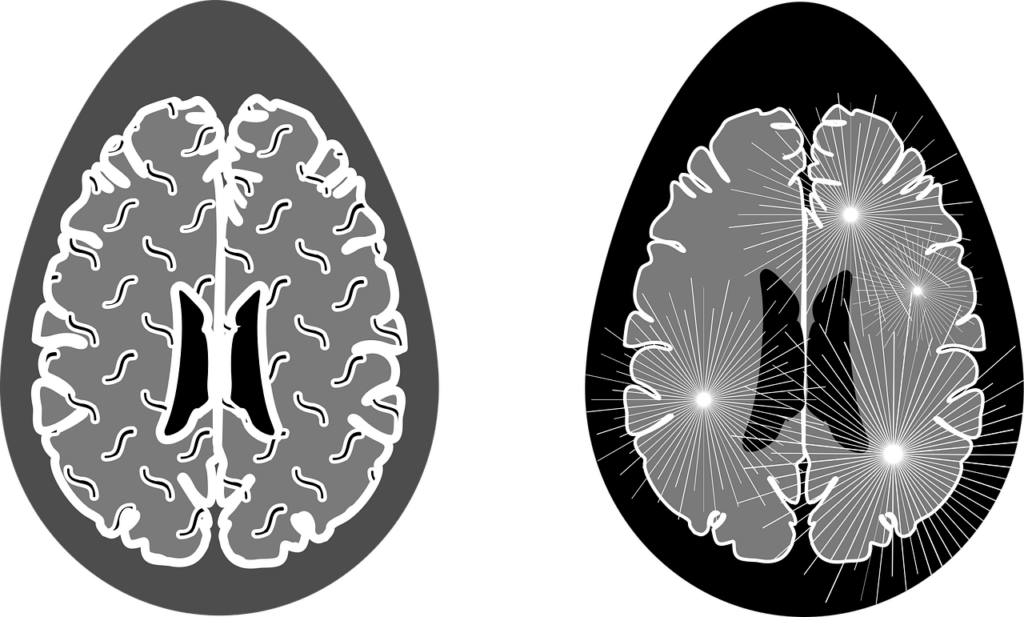

Today we are going to deal with a medical topic. Do you know what MS stands for? MS means Multiple Sclerosis which is a serious, chronic disease. We will take a closer look at MS today, giving you all the key information and symptoms you should know.
MS is an inflammatory disease of the nervous system that causes the inability of the brain to function properly. Multiple means that the disease affects different brain centers. The disease was first described by French neurologist Jean-Martin Charcot in 1868, although the disease had been affecting people much earlier, just not yet discovered. Many historical notes from earlier eras have survived, where people were believed to have suffered from this disease.
MS has many different symptoms of manifestations, so it can be hard to diagnose at first. MS can cause disability in young people. Symptoms mainly affect cognitive function. Here you find Do I Have MS checklist. Among the main symptoms that appear in the early stages of the disease are:
Initial symptoms may be mild and thus difficult to detect. More serious symptoms can take many forms and are highly individual. These include sensory disturbances, poor muscle strength, difficulty moving, frequent cramps, speech problems, swallowing problems, chronic pain and fatigue, incontinence, constipation, among others.
Check your symptoms here as well – Astigmatism Test, Narcolepsy Test or Health Test.
How do I accurately detect if I have MS? The best method is an MRI imaging study done at different intervals. It reveals the following inflammatory changes in the brain areas. Such tests are performed by a neurologist. An equally helpful test is the collection of cerebrospinal fluid.

The combination of the results of these two tests helps the diagnostic process to correctly diagnose the patient’s condition. It should also be remembered that there are similar diseases that should be ruled out. These include Devic’s disease, Schilder’s disease, Balo’s concentric sclerosis and Marburg’s disease.
Unfortunately, MS is a disease that cannot be cured. However, it is possible to slow down its course and alleviate its symptoms, and that is what the treatment process is all about. MS usually leads to disability, but it does not shorten life quickly and suddenly. People with MS live only a few years shorter and healthy people. It is therefore possible to live a normal life with treatment and postpone progressive disability.
Various drugs are used in pharmacotherapy, which are individually recommended by a specialist. Physical rehabilitation is also an important part of the therapy, helping to maintain physical fitness for as long as possible.
While it is not confirmed that these methods will 100% protect you from MS, it is worth implementing some healthy habits, especially if you have concerns about the disease. Such methods include making sure you get enough vitamin D in your body, especially at a young age. It should be supplemented especially during winter.
Find more interesting tests here – Hormon Type Quiz, Color Blind Test or BMI Calculator.
You should also avoid a high-calorie diet rich in fat and carbohydrates. Admittedly, an improper diet can be the cause of many different diseases, so it’s still worth making sure you eat healthy. As for fats, only those unsaturated fatty acids. Studies have shown that they support the nervous system. We should also take care of our immunity, avoid smoking and other stimulants, and take care of physical fitness.
To date, researchers have yet to determine the exact cause of MS disease. The cause of MS can be complex and caused by various factors such as genetics, immunopathology and environmental factors. It is an autoimmune disease, which means that our immune system attacks its own cells in the nervous system.
By analyzing the statistics of the disease, it was determined in which groups it occurs most often. It is known that it more often affects women, people between the ages of 20 and 40, those infected with Epstein-Barr virus, people with type I diabetes, people who smoke cigarettes regularly, people with inflammatory bowel disease, thyroid disease or obesity.
The types of MS disease depend on the symptoms of the disease. MS usually takes the form of the following periods of remission of the disease and periods of relapse of symptoms. The rate at which MS progresses is individual and occurs in different ways.
The first type of MS is relapsing-remitting and presents with neurological symptoms, the first signs of the disease. The severity of symptoms usually lasts from a few days to a few weeks. Over time, symptoms subside or diminish. This type is most common in MS patients, affecting about 80-90% of patients.
The secondary progressive type usually precedes the previously described type. At this stage, the severity and occurrence of symptoms continually progresses and periods of remission are not observed. Typically, this type affects people who have lived with the diagnosis for about 10-15 years.
The third type is primary progressive MS. In this form, symptoms progress significantly causing disability. Instead, it is the smallest group, accounting for 10 percent of sufferers.

There is pediatric MS, which has symptoms similar to those of adults. As for the youngest children, those under the age of six, it is more common in boys. Only after the age of twelve does this trend change and it occurs more often in girls. In children, symptoms subside more quickly and do not cause permanent deficits, as they do in adults with MS. The disease also progresses more slowly than when it appears in adulthood.
There are various activities that people with MS should avoid. These are mainly hot baths, use of saunas or prolonged exposure to the sun during hot weather. High temperatures are risky for neurological symptoms and can exacerbate them. Also beware of situations where a person with MS gets a cold and has a fever. An increase in body temperature, even on its own, can be dangerous, increasing the intensity of neurological symptoms and increasing feelings of fatigue.
MS mainly causes mobility problems, lack of feeling in limbs and general motor disability. However, the disease can additionally negatively affect mental health. Like any diagnosis, it can frighten us and make us lose hope. MS can pose a risk of depression and anxiety. Patients may begin to isolate and withdraw from the social life they had before.
Do you want some psychological tests? Here they are – ADHD Woman Test, Derealization Test or Psychosis Test.
Poor mental health further exacerbates MS symptoms; one disease fuels another. Individuals who exhibit avoidant behavior may have trouble staying on therapy. MS patients also require psychological care and support from family and friends. Living with the disease can be difficult, but with the right support and treatment, it is still possible to live happily.
Now you can take our Do I Have MS Quiz, which will examine whether you have any of the first worrisome symptoms. By this, you know how to test for MS at home. Remember, however, that diagnosing yourself is not enough. The best method is a neurological examination, the results of which will tell you specifically whether you have MS.